If you have ever visited China, I am sure you have noticed the countless women wearing visors, face masks, long sleeves, sunglasses, and all sorts of interesting garments to cover themselves in the scorching sun.
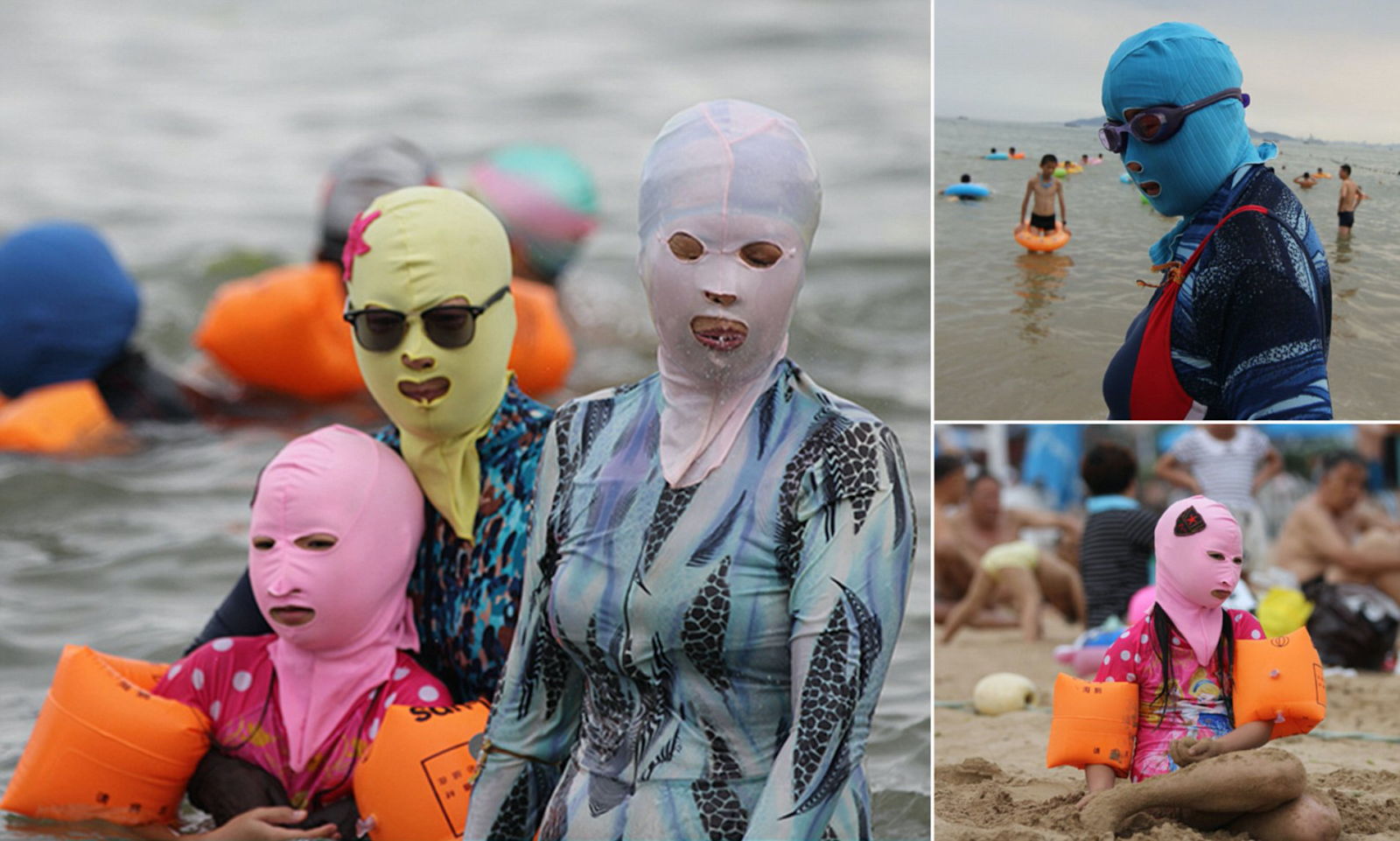 Chinese bathers wearing “face-kinis” on a Qingdao beach in the Shangdong province
Chinese bathers wearing “face-kinis” on a Qingdao beach in the Shangdong province
This sight is truly bizarre to the foreign onlooker and many questions might arise—why are these women trying so hard to cover their skin? Shouldn’t they be wearing less clothing during China’s infamously humid summers? Why is that woman carrying an umbrella? It’s not even raining!
The answer to all your questions lies in China’s rigid beauty standards. Historically, paler skin has been associated with staying out of the sun and working white-collar jobs. Darker skin, in contrast, has been associated with poverty and working in the fields. To put it simply, lighter skin equivocates to a higher socioeconomic status.
Even China’s unofficial term for the ideal woman—白富美 (Bai fu mei)—translates to white, rich, and beautiful.
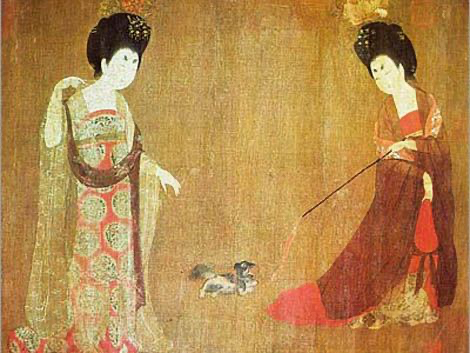 Han Dynasty Women painted during 618-907 A.D.
Han Dynasty Women painted during 618-907 A.D.
Possessing white skin is not only important in China, but also in the rest of Asia. A World Health Organization survey found that 40% of women in China, the Philippines, Malaysia, and South Korea use skin-whitening products. The Future Market Insights valued the global skin-whitening industry at US $13.3 billion in 2017, with Asia’s market contributing US $7.5 billion. China alone accounts for 40% of the sales in Asia.
Although China’s beauty standards have largely developed without foreign intervention due to the nation’s history of isolationism and perhaps even natural selection, the rise of Western influence has only strengthened and spread the skin-whitening ideal.
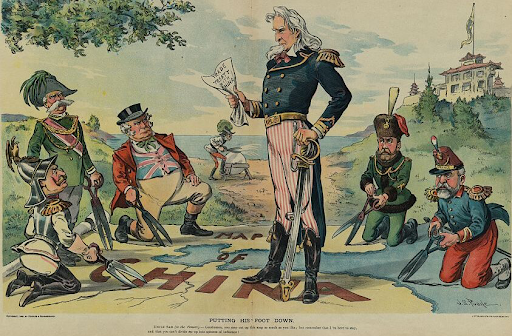 Century of Humiliation by J.S. Pughe
Century of Humiliation by J.S. Pughe
In China, the West is associated with wealth, power, prestige, and global influence. As a result, many Asian countries are trying to follow and imitate the West, including its beauty standards. In China, you can see an overwhelming number of white models posing in native adverts.
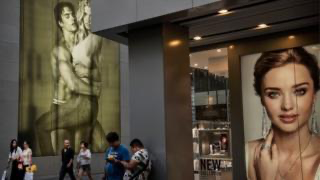 Western models in Chinese advertisements at a Beijing mall
Western models in Chinese advertisements at a Beijing mall
So what are the consequences of China’s unhealthy addiction to whiter skin?
First, it perpetuates Eurocentrism, primarily meaning that everything Western (including history and values) is better and everything that is native is to be abandoned.
Secondly, it promotes racism against people of darker skin. Africans and those of darker skin are already constantly subjected to racism in China. Forms of casual racism are common in China, such as an advertisement where a black man is forcibly pushed into a washing machine and comes out white.
And lastly, whitening products pose several health risks. There are many harmful chemicals in skin-whitening products, including hydroquinone, mercury, and hydrogen peroxide. More than 50% of skin-whitening products also tested positive for dangerous steroids. In illegally produced skin-whitening products, even more, deadly chemical agents have been discovered. Many individuals die or suffer from lifelong diseases because of these black-market products.
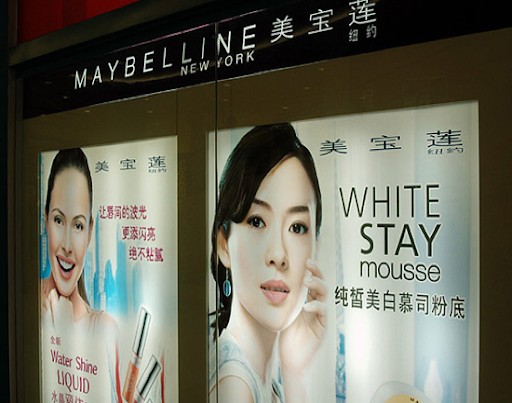 Skin-whitening products advertised in a Chinese mall
Skin-whitening products advertised in a Chinese mall
A nation’s beauty standards are often glossed over as a shallow topic of discussion, but they are in fact just the opposite. They offer illuminating insights into a country’s social, cultural, and political histories. China’s present-day addiction for whiter skin is inexcusable, promoting racism against those of darker skin and pressuring individuals to seek dangerous—often life-threatening—methods to attain the lighter tone valued by society. This infatuation with whiter skin only upholds ideas of Eurocentrism and must be changed.

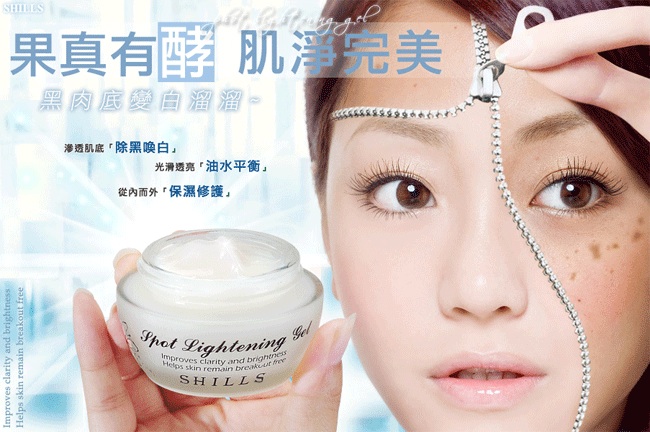

0 Comments